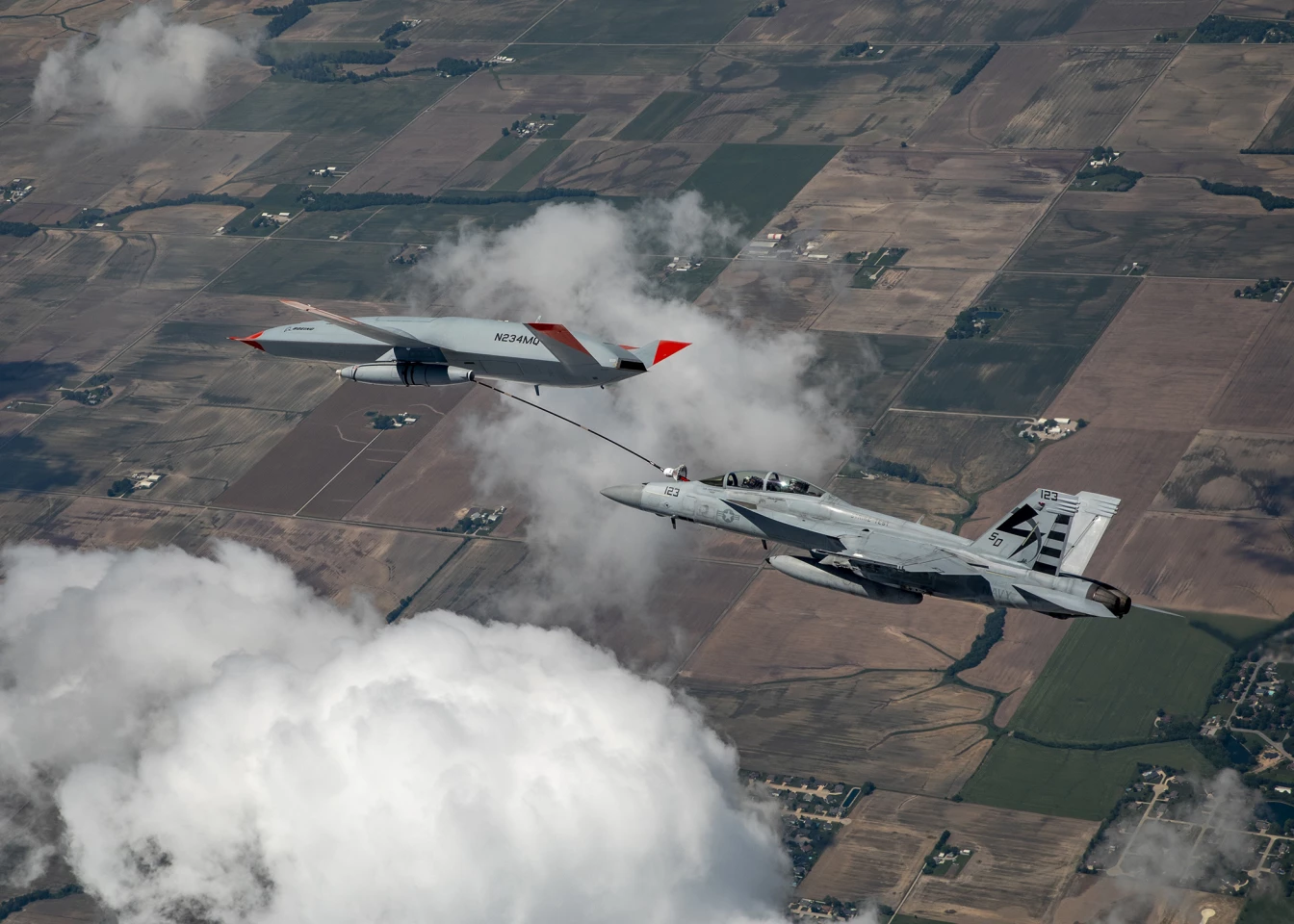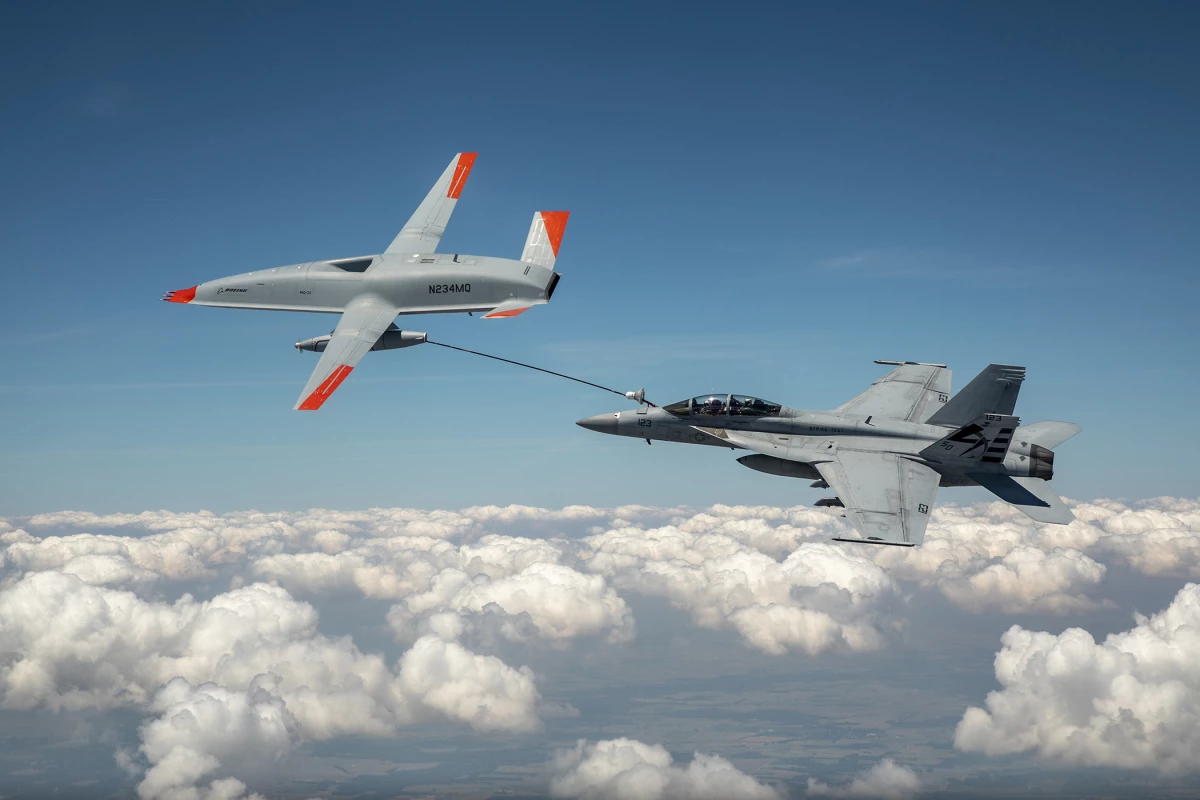For the first time ever, an un-crewed aircraft has successfully refuelled another aircraft while both planes were in flight. In the test, Boeing's MQ-25 T1 aerial tanker drone transferred jet fuel to a US Navy F/A-18 Super Hornet.
Codenamed the Stingray by the Navy, the MQ-25 T1 was developed and built at Boeing's facilities in St. Louis, Missouri, after the aerospace company won a US$805 million US Navy contract. The prototype drone made its first autonomous flight at the MidAmerica St. Louis Airport in 2019, although no refuelling was performed at that time.
Such was not the case on June 4th of this year, however, when the autonomously flying MQ-25 refuelled a piloted F/A-18 Super Hornet in mid-air. The fighter pilot started by flying in close formation below and behind the drone, at which point the MQ-25 released and extended its fuel-delivery drogue – this is essentially a funnel-like receptacle on the end of a long hose.
The pilot then moved in so that the drogue was able to couple with the F/A-18's nose-mounted fuel probe, at which point jet fuel was transferred from the MQ-25 to the Super Hornet. According to Boeing, both aircraft were flying at "operationally relevant speeds and altitudes."

Ultimately, plans call for Stingray tanker drones to operate off of aircraft carriers, taking to the air to refuel passing F/A-18 Super Hornets, EA-18G Growlers and F-35C Lightning II aircraft. That task is currently performed by piloted F/A-18s, which have to be removed from combat duty in order to do so.
"This history-making event is a credit to our joint Boeing and Navy team that is all-in on delivering MQ-25's critical aerial refuelling capability to the fleet as soon as possible," says Leanne Caret, president and CEO of Boeing Defense, Space & Security.
The MQ-25 T1 is now due to be shipped to Norfolk, Virginia, where it will the subject of aircraft carrier deck trials later this year.
You can watch the refuelling exercise for yourself, in the video below.
Source: Boeing





